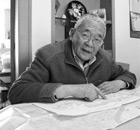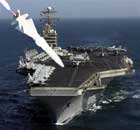Global General
NATO to debate future of nuclear arms in Europe
(Agencies)
Updated: 2010-04-22 13:13
 |
Large Medium Small |
TALLINN - NATO ministers meeting in Estonia on Thursday will debate the future of battlefield nuclear weapons and relations with Russia after Washington and Moscow agreed a major arms reduction treaty this month.
The US-Russian deal would cut the number of deployed long-range, "strategic" nuclear warheads by about 30 percent and is part of a broader effort by the administration of President Barack Obama to boost ties with America's former Cold War foe.
Germany's ruling coalition, which is also keen to boost ties with Moscow, committed in November to withdrawal of US nuclear weapons from German territory, and in February, Germany, the Netherlands, Norway, Belgium and Luxembourg called for a debate about their future in Europe.
While the US administration wants in future to address the issue of battlefield nuclear weapons, which many analysts consider obsolete in the post-Cold War world, it has yet to state publicly its position. It has, however, stressed that any decision must be agreed by all 28 NATO states.
A senior US official who flew to Tallinn with Clinton said she would lay out the US stance over dinner with NATO foreign ministers on Thursday but declined to tip her hand.
"The secretary will spell out some of the principles that guide us as we think about this issue but I will let her address this with the allies first," the official, who spoke on condition that he not be identified, told reporters.
Russia, meanwhile, says it will not start destroying its massive superiority in the weapons until Washington removes its bombs from Europe, a prospect worrying to former Soviet bloc states that are now part of NATO.
Another key concern is that any move to remove NATO nuclear weapons could prompt Turkey to develop its own deterrent, given its worries about nuclear proliferation in the Middle East.
NATO STRESSES COMMON APPROACH
NATO aims to set out its nuclear stance in a new strategic vision due to be approved at a summit in Lisbon in November and stresses the need for a common approach.
"No decision will be taken in Tallinn," NATO Secretary-General Anders Fogh Rasmussen said on Monday.
"But I do think the principles of NATO's nuclear discussion are already clear: first that no ally will take unilateral decisions and second that as long as there are nuclear weapons in the world, NATO will need a nuclear deterrent."











